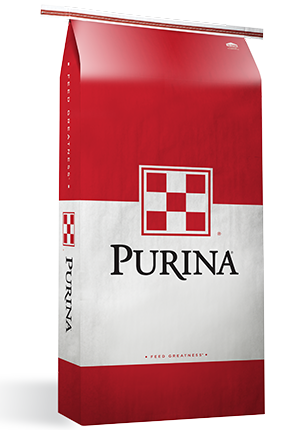
Three Tips to Maximize Meat Goat Rate of Gain
Wellness : Nutrition
Wellness : Health

Use these tips to make the most of your forages and supplemental goat nutrition.
Raising meat goats calls for a sharp pencil when it comes to feed costs since they nearly always account for the largest share of expenses. Balancing feed quality to maximize weight gain is vital to amplify your nutrition investment and bring home more profit.
Placing a focus on providing diets containing proper forage, protein and energy levels that drive efficient gain is a good objective to keep in mind.
Efficient rate of gain maximizes conversion of feed to gain without overfeeding. The goal is to provide enough energy, protein and forages to maximize an animal’s genetic potential.
Use these three tips to maximize your nutrition program to support efficient goat growth:
1. Ensure adequate dietary protein and energy
Meat goat diets must contain both protein and energy to be productive. Energy from carbohydrates and fats drives growth rates and weight performance while protein is important to support feed intake and digestion.Insufficient dietary protein levels can negatively affect growth rate, disease resistance and more because not enough amino acids reach the intestines to be absorbed by the body.1
Lush forages can provide adequate fat and protein levels, but high-quality forages are not always available or cost-effective when purchased in large volumes. That’s when strategic supplementation can help efficiently boost diet effectiveness.
Feeding a supplement high in both protein and fat can help improve appetite, rate of gain and efficient cost of gain. Adding a supplement like Purina® Goat Grower-Finisher 14 helps goats get more from their feed, especially when forage quality is low or when goats are in pens and not on pasture. It can be used at every stage of a goat’s life and in all aspects of production.
Make sure to choose a supplement with the right balance of dietary fat since excess fat (generally more than 5% of the total diet) can suppress rumen fermentation.
2. Maintain forage quantity and quality
Goats need plenty of high-quality forage for efficient growth – between 1.5% and 2% of a goat’s body weight. High forage levels are important even in dry lots when you may be supplementing diets more heavily to increase gains and reduce days on feed.Purina® Goat Grower-Finisher 14 contains fiber to aid in digestibility, but it’s still important to feed adequate dietary forage to maintain rumen health. And, adequate forage is particularly important for goats receiving higher fat and protein supplementation levels.
When goats don’t receive enough forage, they aren’t as efficient at converting supplemental protein or energy into meat because the rumen isn’t getting scratch value to stay healthy.
3. Aim for consistent, achievable weight gains
Whether raising meat goats for market or as replacement females, steady growth is the goal.Achievable daily gains depend on goat genetics, but gains of 0.25 to 0.3 pounds per day is a good benchmark. On full feed, it takes about 3.75 to 4 pounds of supplemental feed per head per day to reach that goal.
On the flip side, it’s important to understand when goats have reached their maximum efficient growth potential.
Producers should recognize when goats are no longer growing but are only gaining fat. Monitoring body condition score (BCS) and not letting goats get above a 3 out of 5 BCS will help. Getting goats to market at the right time is more efficient and will save on unnecessary feed costs.
Does your goat nutrition program stack up? Find out with a Proof Pays trial.
1Luginbuhl JL. September 2020. Nutritional Feeding Management of Meat Goats. North Carolina State University Extension. Available at: https://content.ces.ncsu.edu/nutritional-feeding-management-of-meat-goats.


